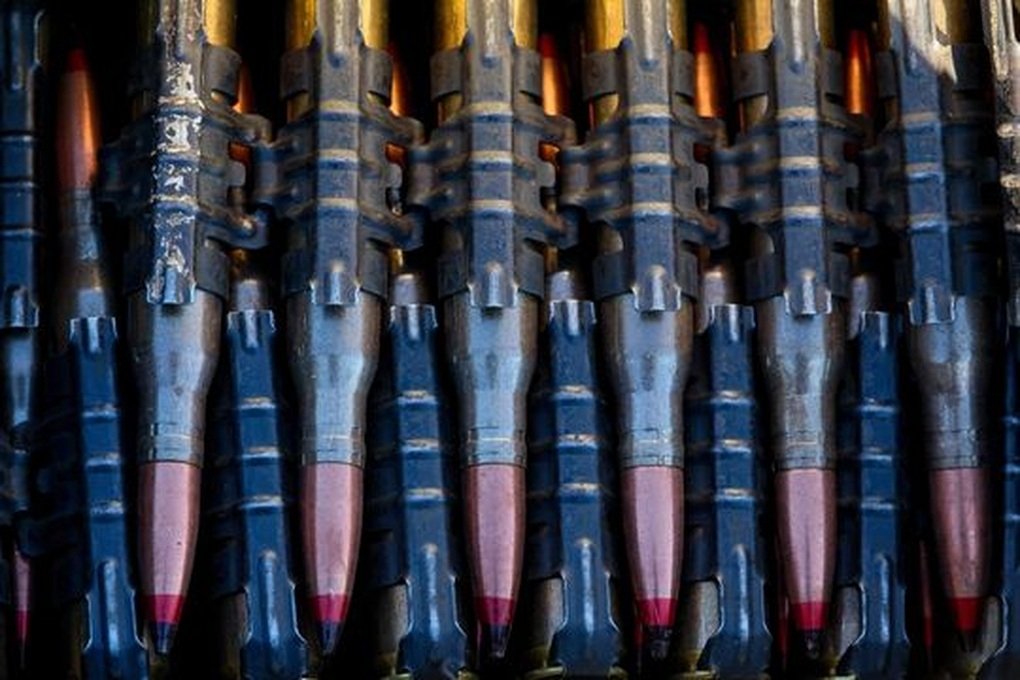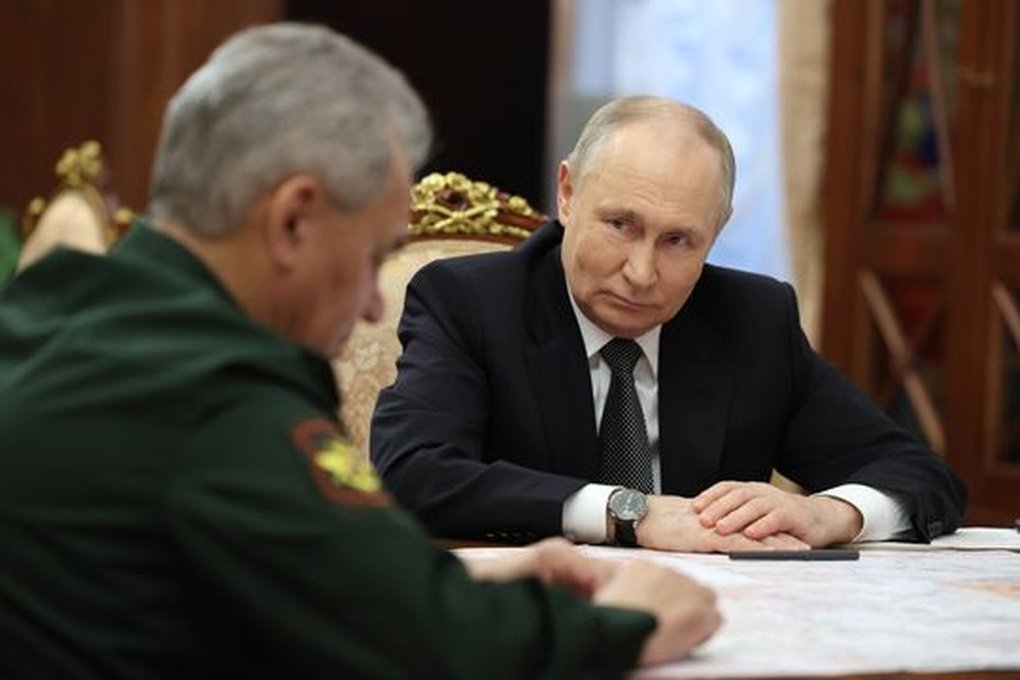(Dan Tri) – Western officials say the strongest sanctions are affecting Russia’s economy and military output but admit the impact is slower than expected.
President Vladimir Putin discussed with Russian Defense Minister Sergei Shoigu at the Kremlin this week (Photo: EPA-EFE).
Complex cat and mouse game
Two years after Russia launched a special military campaign in Ukraine, the strongest US and Western sanctions have still failed in their main task: stopping Moscow’s military activities.
Western officials and experts say that the financial, economic, military and energy sanctions imposed on Moscow since February 2022 have harmed the economy and its weapons production capacity.
This week, Western countries are applying a series of new sanctions against Russia.
On February 21, Britain punished six Russians who it said were involved in the death of political figure Alexei Navalny, while the US also emphasized that it would announce the strongest sanctions related to this case.
But with Russia, they have made efforts to avoid sanctions and consider this a top priority.
Moscow’s evasion of sanctions has created a complicated cat-and-mouse game.
Western officials introduced sanctions aimed at harming Russia, but Moscow eventually adapted, forcing American and European policymakers to go back to considering more measures.
Western officials believe that Russia cannot produce enough ammunition on its own to achieve its military goals in Ukraine.
According to US and Western accusations, it was Iran and North Korea that transferred unmanned aerial vehicles (UAVs) and missiles to Russia, while China and Turkey provided Moscow with a regular supply of dual goods.

Western officials believe that Russia cannot produce enough ammunition on its own to subdue Ukraine (Photo: TASS).
Unlike previous sanctions by the US and the West targeting Iran or North Korea, Russia’s economic weight makes it difficult to isolate.
US, UK and EU officials have toured countries around the world to persuade neutral countries not to reduce sanctions on important military and dual-use goods.
After the outbreak of hostilities, the US and its partners considered sanctions as the third pillar in supporting Ukraine, in addition to economic and military aid to Kiev.
Will the situation be more worrying for Russia?
US and European officials say their sanctions have deprived Russia of about 400 billion euros in revenue since February 2022.
Justin Bronk, a senior researcher at the British Institute for Security Studies, Royal United Services Institute, said sanctions have forced Russia to rely on tanks that are of inferior quality to the ones they use.
Russia could only access Western microchips for missiles at higher pre-war prices, or had to rely on lower quality Chinese goods.
Western officials said on February 21 that the chain of sanctions was harming Russia’s military industry and would prevent Moscow from producing enough ammunition for battlefield needs.
However, a study by the Kiev School of Economics published last month found that about 95% of the 2,800 foreign components found in Russian weapons on the battlefield since the war began were Western.
However, the enforcement of sanctions in the EU, which is divided among several countries, has helped Moscow maintain vital supplies.
The Kremlin is establishing a full-blown war economy.
In the first half of 2023, the Russian budget’s oil and gas revenue decreased by 47% compared to the same period in 2022 due to oil price limits and Moscow’s loss of oil and gas exports to Europe.
However, Russia was able to circumvent the price cap in a variety of ways.
The US is still worried about the impact on global oil supply when enforcing price limits too strongly.
`The West has been overly cautious in certain respects, especially
Many Western officials and economists predict the Russian economy will face more serious difficulties early next year, leading Ukraine to expect it can maintain resistance, especially when a new administration in the US takes office.
After Russia’s gross domestic product (GDP) grew 3.6% last year, the International Monetary Fund (IMF) pegs 2.6% growth in 2024 for Moscow before a sharp contraction next year
`For Russia in the short term, rising oil prices have helped counteract the impact of sanctions,` said Richard Portes, a professor at London Business School.
